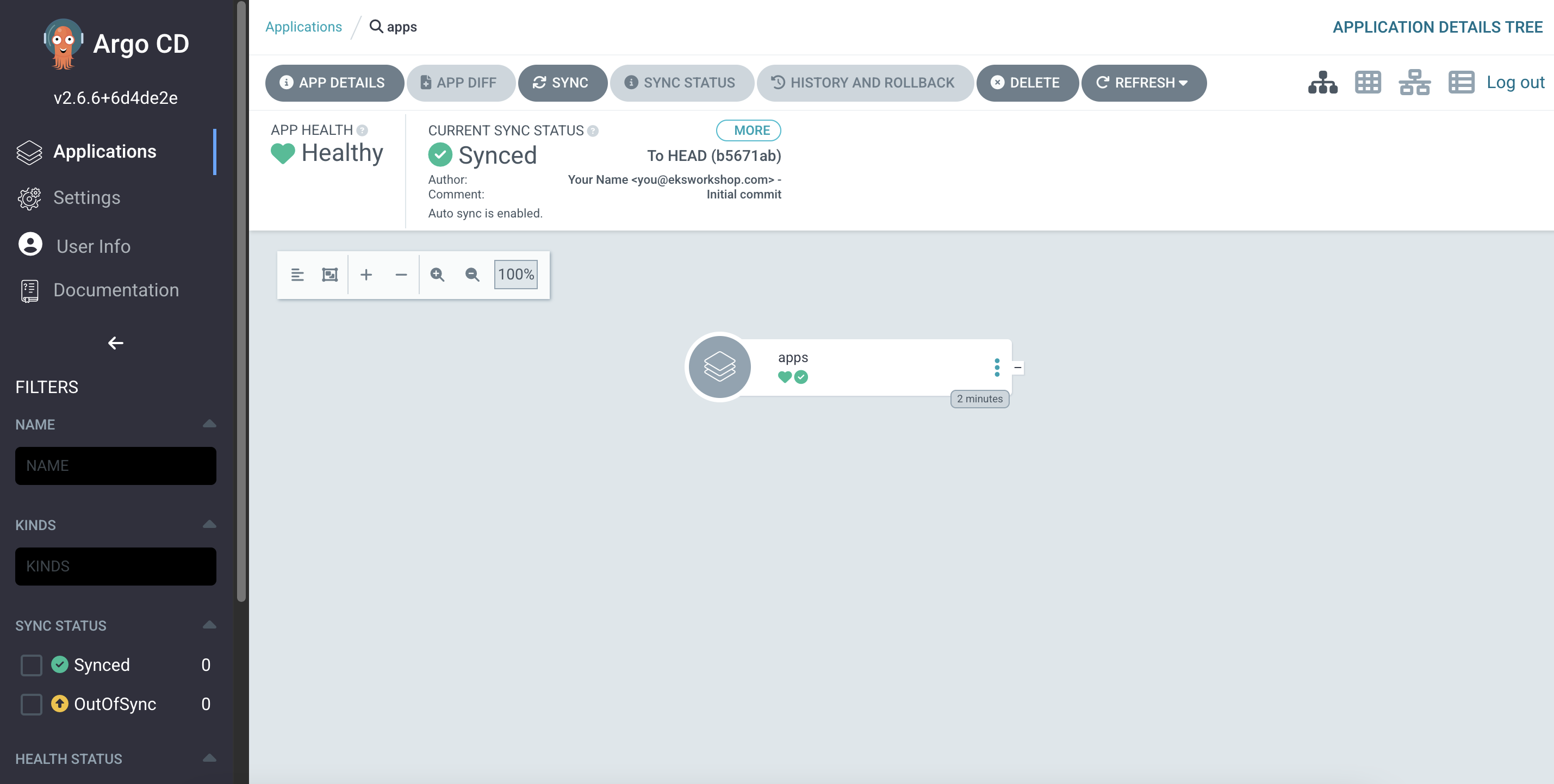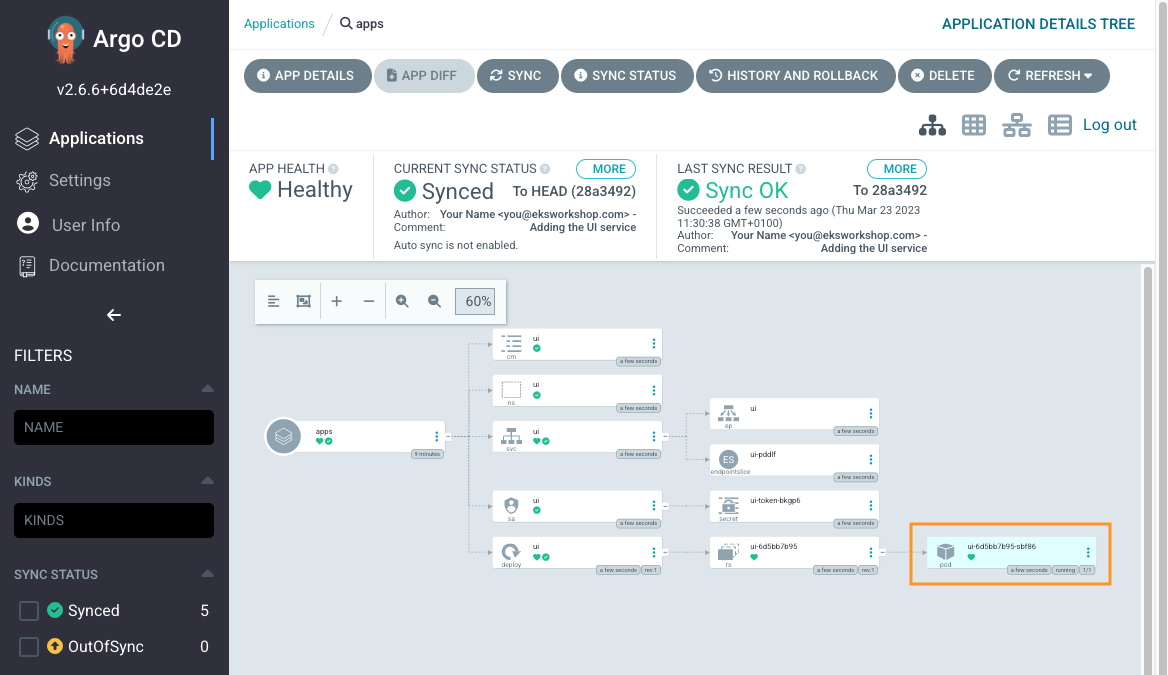Deploying an application
We have successfully configured Argo CD on our cluster so now we can deploy an application. To demonstrate the difference between a GitOps-based delivery of an application and other methods, we'll migrate the UI component of the sample application which is currently using the kubectl apply -k approach to the new Argo CD deployment approach.
First let's remove the existing UI component so we can replace it:
namespace "ui" deleted
serviceaccount "ui" deleted
configmap "ui" deleted
service "ui" deleted
deployment.apps "ui" deleted
Now, let's get into the cloned Git repository and start creating our GitOps configuration. Copy the existing kustomize configuration for the UI service:
We'll then need to create a kustomization in the apps directory:
apiVersion: kustomize.config.k8s.io/v1beta1
kind: Kustomization
resources:
- ui
Copy this file to the Git repository directory:
You Git directory should now look something like this which you can validate by running tree ~/environment/argocd:
.
└── apps
├── kustomization.yaml
└── ui
├── configMap.yaml
├── deployment.yaml
├── kustomization.yaml
├── namespace.yaml
├── serviceAccount.yaml
└── service.yaml
2 directories, 7 files
Open the Argo CD UI and navigate to the apps application.

Finally we can push our configuration to the Git repository:
The default Refresh interval is 3 minutes (180 seconds). You could change the interval by updating the "timeout.reconciliation" value in the argocd-cm config map. If the interval is to 0 then Argo CD will not poll Git repositories automatically and alternative methods such as webhooks and/or manual syncs should be used.
For training purposes, let's set Refresh interval to 5s and restart argocd application controller to deploy our changes faster
We can also use the Sync button or the argocd CLI to Sync an application:
After a short period of time, the application should be in Synced state and the resources should be deployed, the UI should look like this:

That shows that Argo CD created the basic kustomization, and that it's in sync with the cluster.
We've now successfully migrated the UI component to deploy using Argo CD, and any further changes pushed to the Git repository will be automatically reconciled to our EKS cluster.
You should now have all the resources related to the UI services deployed. To verify, run the following commands:
NAME READY UP-TO-DATE AVAILABLE AGE
ui 1/1 1 1 61s
NAME READY STATUS RESTARTS AGE
ui-6d5bb7b95-rjfxd 1/1 Running 0 62s